- Why Defund The Police?
- What Could This Look Like In Practice?
- How Can We Do This?
- How The Minneapolis Budget Cycle Works
- What To Do Next
- Links
Contents
How To Defund The Police
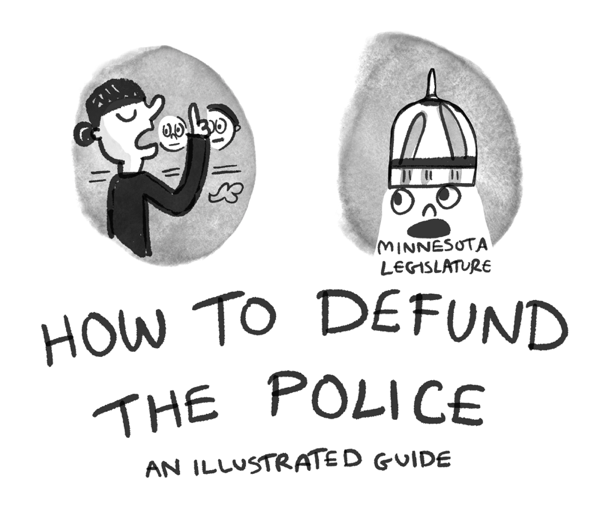
This page is also available at defundthepolice.net.
Over the last week I've been feeling powerless to change things, because I don't understand our political system well enough. So after doing some research and talking to some friends who know more about the government, I've put together this illustrated guide. It made me feel like I could make my voice count, and I hope it does the same for you.
Why defund the police?
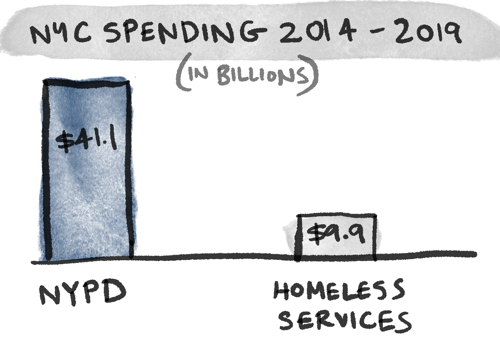
Police are being tasked with problems that are outside their expertise. Over the last 40 years, we have thrown a lot of societal problems at the police, homelessness and mental illness for example. Cops don't have tools to deal with these problems. For example, with homeless people, cops can either move them or arrest them.
I love this quote from this NPR article:
Part of our misunderstanding about the nature of policing is we keep imagining that we can turn police into social workers. That we can make them nice, friendly community outreach workers. But police are violence workers. That's what distinguishes them from all other government functions, is that they have the legal capacity to use violence in situations where the average citizen would be arrested.
So when we turn a problem over to the police to manage, there will be violence, because those are ultimately the tools that they are most equipped to utilize: handcuffs, threats, guns, arrests. That's what really is at the root of policing. So if we don't want violence, we should try to figure out how to not get the police involved.

So defunding the police is not about taking away their money in petty revenge; it's about having a better solution to problems like homelessness.
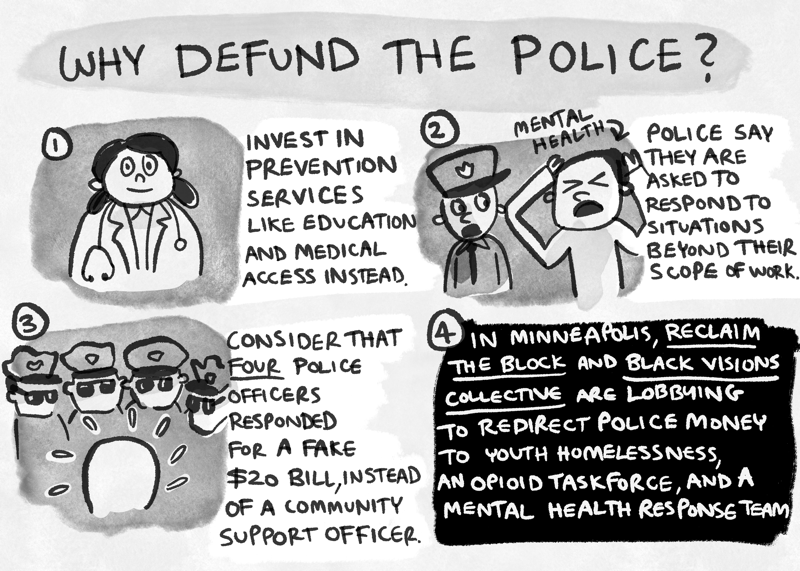
This document has interesting perspectives from police officers, like this one:
Back in 2015 when I started, homelessness ate up maybe five minutes a week of my time. By the end of the year, it was probably 50 percent of my time.
What could this look like in practice?
I live in the Twin Cities area, so let's look at Minneapolis -- though these concepts can apply anywhere.
In Minneapolis, the estimated police budget for 2020 is $194,810,079:
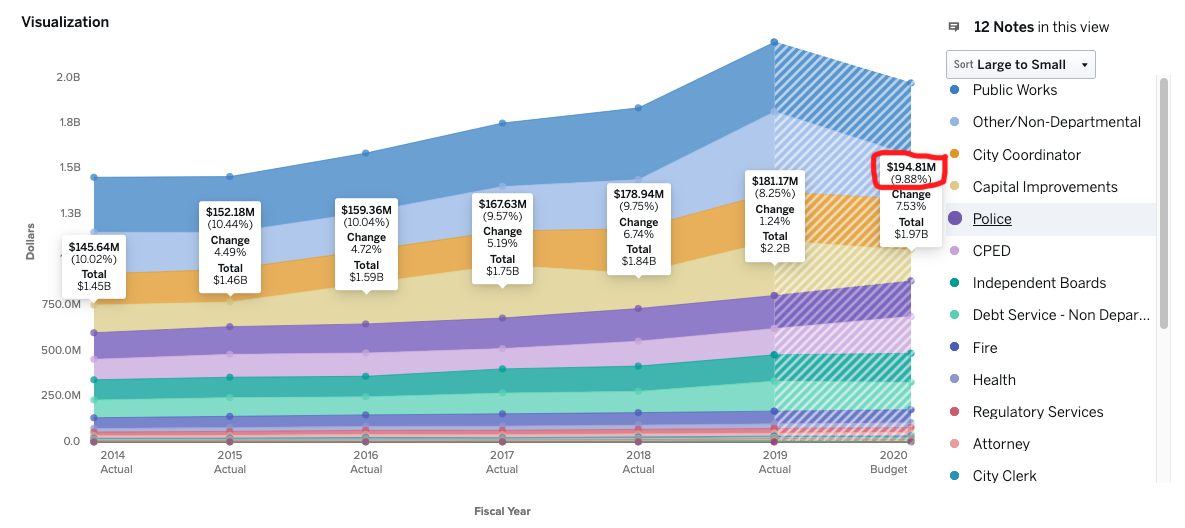
Reclaim The Block and Black Visions Collective are lobbying for $45 million worth of MPD’s budget to be redirected into violence prevention programs, youth homelessness programs, an opioid taskforce and mental health response team (source).
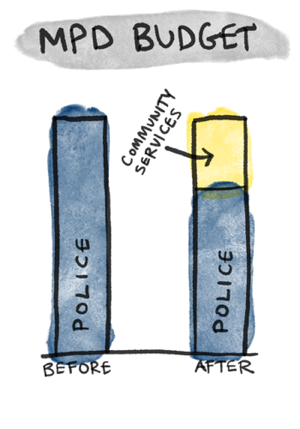
How can we do this?
This will come down to budget battles across the country. It's happening already:
- The Minnesota special session will be focused on police reform.
- Minneapolis is talking about dismantling the MPD altogether. Camden did this in 2012 and saw reduction in crime.
- The 8 Can't Wait movement is gaining traction.
Let's look at what a budget cycle looks like, so you can have a voice in the budget battle.
How The Minneapolis Budget Cycle Works
The city of Minneapolis already has a terrific video on this:
Important takeaways:
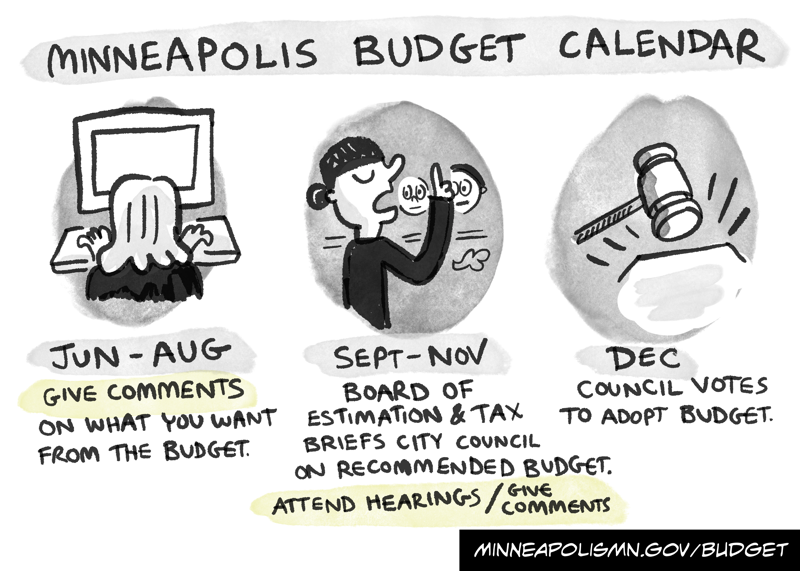
- June - August: Citizens give comments on what they want from the budget. The mayor takes this input and recommends a budget.
- September - November: the Board of Estimate and Taxation briefs the city council on the impact of the recommended budget. These presentations are televised and open to the public. The council will make changes to the budget during this time based on feedback from YOU. If you can't make it to the public hearings, you can give input through an online comment form.
- December: city council votes to adopt the budget, which will fund the city for the coming year.
Even though the Minneapolis City Council has voted to dismantle the MPD, the details have not been worked out. These dates give you a chance to say what you want the solution to look like.
What To Do Next
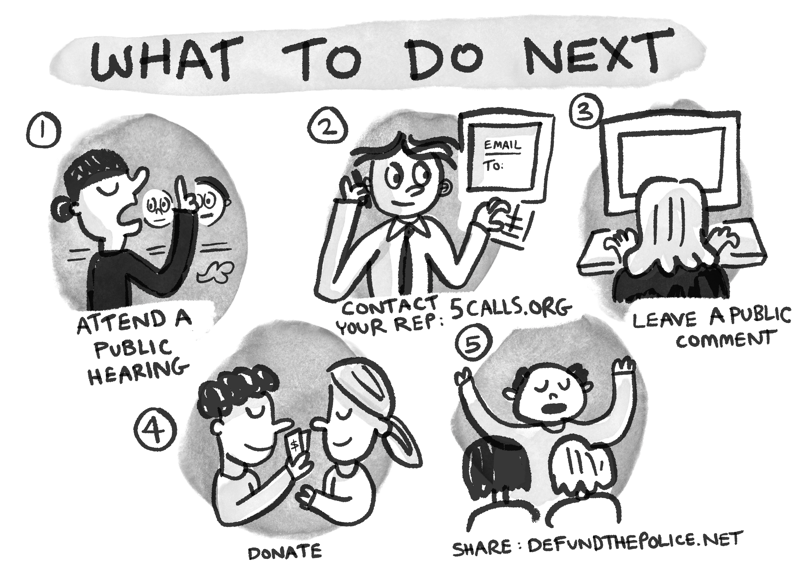
Some possible next steps are:
- Show up to public hearings. If you can't show up, leave a comment online.
- Call your representative. If a state rep gets 50 calls in a single day, that is really unusual and will have a definite impact. Say something like "I voted for you and I want to see you doing X" (voting for a bill that reduces police spending, introducing a bill, etc).
- Donate to an organization. Reclaim The Block and Black Visions Collective are lobbying for $45 million worth of MPD’s budget to be redirected into violence prevention programs, youth homelessness programs, an opioid taskforce and mental health response team (source).
- Read more.
Links
- Resources to support the Minneapolis protest and community.
- 75 things white people can do for racial justice.
- Link to live calendar for Minneapolis public meetings.
- Minneapolis budget calendar.
- Minneapolis adopted budget for 2020. I recommend searching for "police" in this doc -- there are a lot of interesting things in here.
- Study: Body cams and police trainings are not effective in reducing police violence.
- This writeup on using your money to support black lives is terrific.
Here's a similar writeup for defunding the Charlotte Police Dept. I also have an illustrated guide on how the Minnesota budget cycle works.